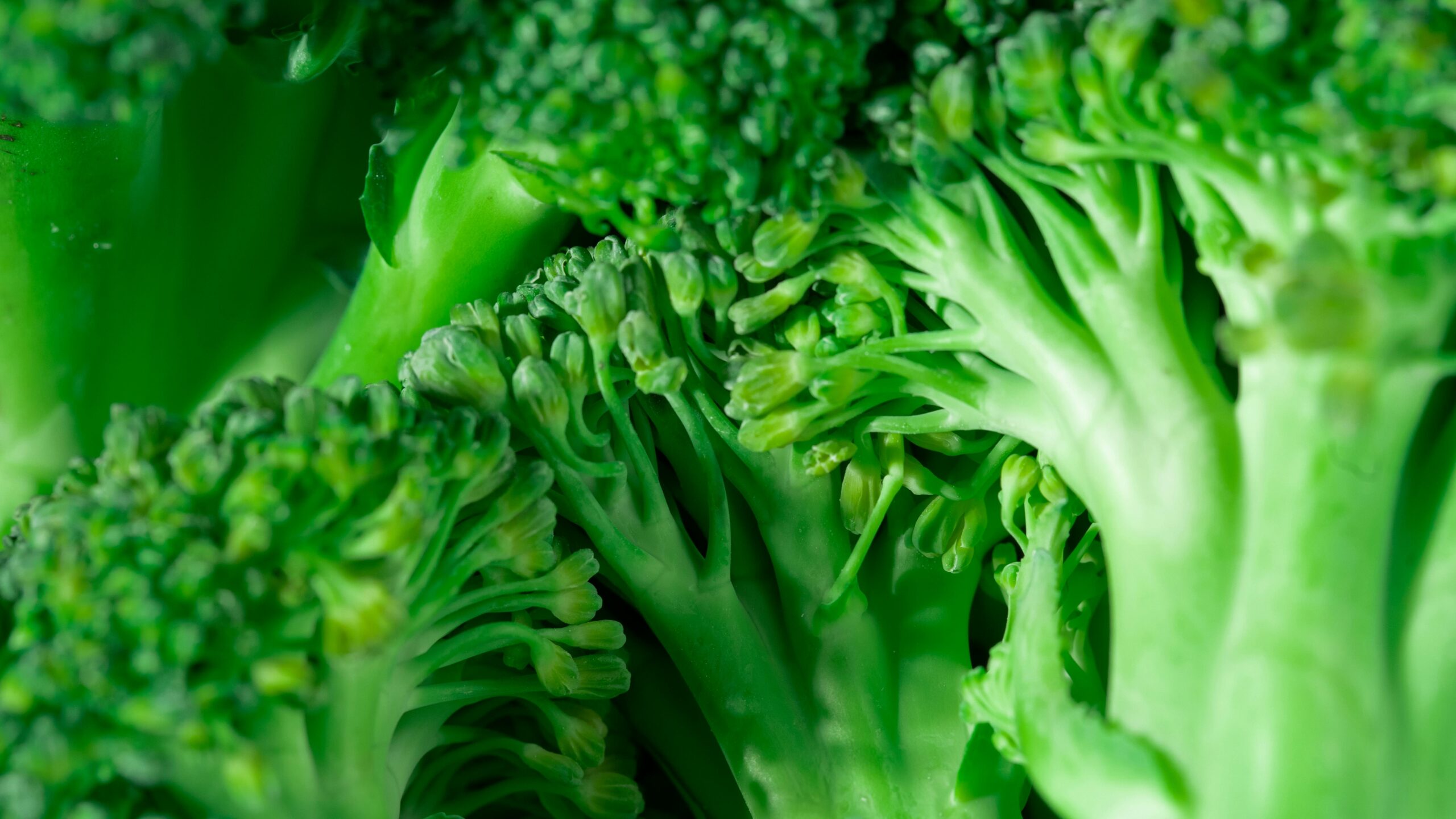Why Eating Organic Food is Key to a Nutritious Diet
In today’s world of health-conscious living, making informed dietary choices is more critical than ever. Among the many ways to improve our nutrition, one approach has steadily gained recognition for its profound benefits: choosing organic food. From the fields to your fork, organic foods represent more than just a label—they embody a philosophy of living that prioritizes sustainability, reduced chemical exposure, and superior nutritional value. This comprehensive guide will explore why eating organic food is key to a nutritious diet, examining everything from the science behind organic agriculture to the tangible benefits for your body, the environment, and society as a whole.
1. Introduction: A Return to Nature
Over the past several decades, our food system has become increasingly industrialized. Conventional agriculture, while effective in producing high yields, often relies on synthetic pesticides, chemical fertilizers, and genetically modified organisms (GMOs) to maximize production. These methods, although efficient in terms of quantity, have raised concerns about long-term health, environmental sustainability, and food quality. In contrast, organic food production emphasizes natural processes and ecological balance. By choosing organic, consumers opt for produce, dairy, meat, and grains grown without harmful chemicals and with respect for biodiversity.
Eating organic is not merely a trend—it is a deliberate choice to reconnect with food as nature intended. When food is grown organically, it is allowed to ripen fully in its natural environment. This results in fruits and vegetables that are not only more flavorful but also more nutrient-dense. As we explore the benefits of organic food in this article, it becomes evident that the advantages extend far beyond the dinner plate. Organic eating is a holistic approach that nurtures your body, supports sustainable farming practices, and contributes to a healthier planet.
2. What Is Organic Food?
2.1 Defining Organic
Organic food is produced using methods that support ecological balance and conserve biodiversity. It excludes synthetic pesticides, fertilizers, GMOs, irradiation, and sewage sludge. Instead, organic farmers rely on natural substances and physical, mechanical, or biologically based farming methods. Certification standards, which vary by country, ensure that products labeled as organic meet strict guidelines regarding their production and processing.
2.2 The Principles of Organic Farming
At the heart of organic agriculture are several core principles:
- Environmental Stewardship: Organic farming works with nature by conserving resources, enhancing soil fertility, and reducing pollution.
- Biodiversity: Crop rotations, intercropping, and maintaining habitats for beneficial insects and wildlife are all key components.
- Animal Welfare: Organic livestock are raised without antibiotics or growth hormones, provided access to the outdoors, and fed organic feed.
- Sustainable Practices: By emphasizing renewable resources and soil conservation, organic farming aims to create long-term ecological balance.
Understanding these principles helps clarify why organic food can be a more nutritious and ethical choice.
3. Nutritional Superiority: Organic vs. Conventional
One of the most compelling reasons to choose organic food is its potential nutritional advantages over conventionally produced alternatives.
3.1 Higher Levels of Vitamins and Minerals
Numerous studies have indicated that organic produce often contains higher levels of vitamins and minerals. For instance, some research suggests that organic fruits and vegetables may have elevated concentrations of vitamin C, iron, magnesium, and phosphorus compared to their conventional counterparts. This difference is largely due to the natural fertilization and soil management practices used in organic farming, which help preserve soil quality and nutrient content.
3.2 Greater Antioxidant Capacity
Antioxidants are vital for combating oxidative stress, a process linked to chronic diseases such as heart disease, cancer, and neurodegenerative disorders. Organic crops, free from synthetic pesticides, may produce more antioxidants as a natural defense mechanism against pests and environmental stressors. Studies have found that organic tomatoes, for example, often boast higher levels of lycopene and vitamin C. Similarly, organic berries may contain more flavonoids, which contribute to their vibrant color and potent health benefits.
3.3 Reduced Chemical Residues
Perhaps one of the most significant nutritional benefits of organic food is the reduced presence of synthetic chemical residues. Conventional produce is often exposed to pesticides and herbicides that can remain on the food even after washing. While regulatory bodies set maximum residue limits to ensure safety, some consumers prefer to minimize their exposure altogether. Organic foods, by definition, are grown without these chemicals, providing an extra layer of assurance that you are consuming food as naturally as possible.
3.4 Impact on Fatty Acid Profiles
Organic dairy and meat products have been reported to possess a healthier fatty acid profile compared to those from conventional sources. Organic milk, for example, may have higher levels of omega-3 fatty acids and conjugated linoleic acid (CLA)—nutrients associated with improved cardiovascular health and reduced inflammation. These differences are partly due to the organic diet fed to livestock, which includes access to pasture and organic feed, leading to a more natural nutritional profile in the animal products.
4. Health Benefits of Eating Organic Food
The nutritional advantages of organic food translate into several direct health benefits. By choosing organic, you can potentially improve your overall well-being in a variety of ways.
4.1 Reduced Risk of Pesticide Exposure
Exposure to pesticides has been linked to a range of health issues, including hormonal imbalances, neurological problems, and an increased risk of certain cancers. Organic foods, which are grown without synthetic pesticides, can help reduce your overall exposure to these chemicals. This is particularly important for vulnerable populations such as children, pregnant women, and individuals with compromised immune systems.
4.2 Enhanced Immune Function
A diet rich in organic fruits and vegetables provides the body with a robust array of vitamins, minerals, and antioxidants—all of which support a healthy immune system. Vitamins such as vitamin C and vitamin E, found in higher concentrations in some organic produce, play critical roles in immune cell function. By reducing the burden of chemical residues and increasing nutrient density, organic foods can help your body ward off infections and diseases more effectively.
4.3 Lower Incidence of Antibiotic Resistance
Organic livestock are raised without the routine use of antibiotics. The overuse of antibiotics in conventional animal farming has contributed to the rise of antibiotic-resistant bacteria, a growing public health concern. By consuming organic meat and dairy products, you can help reduce the spread of antibiotic resistance—a benefit that extends beyond personal health to global public health.
4.4 Improved Digestive Health
Organic foods are not only richer in nutrients but also tend to have higher levels of beneficial bacteria. Organic produce, grown in healthier soil, supports a diverse microbiome both in the environment and in the human gut. A balanced gut microbiome is essential for effective digestion, nutrient absorption, and even mental health. Reduced exposure to chemical residues may also help prevent disruptions to your gut flora, promoting better overall digestive health.
4.5 Potential Reduction in Chronic Disease Risk
Emerging research suggests that diets high in organic foods may be linked to a lower risk of chronic diseases. The higher antioxidant levels, reduced chemical exposure, and improved fatty acid profiles in organic foods contribute to reduced inflammation—a common underlying factor in many chronic conditions. While more long-term studies are needed, the evidence to date supports the notion that organic eating may offer protective benefits against diseases such as cardiovascular disease, diabetes, and certain types of cancer.
5. Environmental Benefits: A Healthier Planet Means Healthier You
Choosing organic food is not just about personal health; it’s also about supporting a more sustainable food system that benefits the environment. A healthier planet directly contributes to the well-being of its inhabitants.
5.1 Soil Health and Biodiversity
Organic farming practices focus on building and maintaining healthy soil through crop rotation, composting, and natural pest control. Healthy soil is teeming with microorganisms and nutrients, which in turn produce more nutrient-dense crops. Furthermore, organic farming preserves biodiversity by avoiding chemical inputs that can harm beneficial insects, birds, and other wildlife. A rich, diverse ecosystem is essential for resilient agriculture and long-term food security.
5.2 Reduced Pollution and Water Contamination
Conventional farming practices often rely on synthetic fertilizers and pesticides that can leach into waterways, contaminating drinking water and harming aquatic ecosystems. Organic agriculture minimizes these risks by using natural fertilizers and pest management techniques. This results in cleaner water, less soil degradation, and a reduction in greenhouse gas emissions associated with chemical production. By choosing organic, you support methods that protect the planet’s most vital resources.
5.3 Energy Efficiency and Climate Change Mitigation
Organic farming is generally more energy-efficient than conventional agriculture. By eliminating the need for synthetic chemicals—which require significant energy inputs to produce—organic farming reduces the overall carbon footprint of food production. Practices such as cover cropping and reduced tillage also contribute to carbon sequestration, helping mitigate the effects of climate change. A stable climate is crucial for sustainable food production and long-term human health.

6. Economic and Social Impacts
Beyond health and environmental benefits, organic food also has broader economic and social implications that contribute to a healthier society.
6.1 Supporting Local and Small-Scale Farmers
Organic farming often takes place on a smaller scale compared to industrial agriculture. By purchasing organic products, consumers support local farmers and small-scale producers who are dedicated to sustainable practices. This support helps maintain rural economies, encourages community resilience, and fosters transparency in food production.
6.2 Fair Trade and Ethical Practices
Many organic farms emphasize fair labor practices and community development. Organic certification frequently goes hand in hand with ethical considerations, ensuring that workers receive fair wages and safe working conditions. By choosing organic, you align your purchasing decisions with values that promote social justice and human rights.
6.3 Consumer Awareness and Education
The rise in organic food consumption has led to increased consumer awareness about food production, sustainability, and health. As more people demand organic options, the food industry is encouraged to adopt better practices, resulting in a positive feedback loop that benefits everyone. Educated consumers are more likely to make choices that are in the best interest of both personal health and the environment.
7. Taste, Quality, and Culinary Experience
While the health and environmental benefits of organic food are compelling, the sensory qualities of organic produce are also worth noting.
7.1 Superior Flavor Profiles
Many chefs and food enthusiasts claim that organic produce has a more authentic, robust flavor compared to conventionally grown counterparts. This is partly because organic fruits and vegetables are allowed to ripen fully in natural conditions, developing a richer taste and aroma. When you eat food that tastes better, you are more likely to enjoy healthy meals and stick to nutritious eating habits.
7.2 Fresher and More Nutritious
Organic foods, especially those purchased locally, often reach your table at their peak freshness. Fresh produce not only tastes better but also retains more nutrients. Seasonal organic fruits and vegetables harvested at the right moment provide a sensory experience that is hard to match by out-of-season, mass-produced alternatives.
7.3 Culinary Creativity
Organic ingredients inspire culinary creativity. Chefs and home cooks alike appreciate the versatility and vibrant flavors of organic produce. Whether you’re preparing a simple salad or a gourmet dish, organic ingredients encourage experimentation and lead to meals that are both visually appealing and nutritionally balanced.
8. Overcoming Challenges and Misconceptions
Despite the numerous benefits of organic food, some challenges and misconceptions remain. Addressing these concerns can help more people make informed choices about their diet.
8.1 Cost Considerations
One of the most common criticisms of organic food is its higher cost. It is true that organic products can be more expensive due to the labor-intensive practices and smaller scale of production. However, when considering the long-term health benefits and reduced healthcare costs associated with improved nutrition, the investment in organic food can be seen as cost-effective. Moreover, buying seasonal and locally produced organic items can help reduce costs, as these products are often more affordable than imported or out-of-season items.
8.2 Availability and Accessibility
In some areas, organic food may be less readily available than conventional produce. Yet, with increasing consumer demand, organic options are becoming more common in supermarkets, farmers’ markets, and through community-supported agriculture (CSA) programs. Planning your shopping and exploring local sources can improve accessibility.
8.3 Skepticism About Nutritional Differences
While some skeptics argue that the nutritional differences between organic and conventional foods are minimal, emerging research consistently shows that organic foods often have higher levels of antioxidants, vitamins, and minerals. Even if the differences in nutrient levels seem modest, the cumulative effect over time—combined with the reduced exposure to harmful chemicals—can contribute significantly to overall health.
8.4 Addressing Misconceptions
Many misconceptions surround organic food, including the belief that it is entirely free of pesticides or that it lacks scientific support. In reality, organic standards do permit the use of certain natural pesticides and fertilizers. The key difference is that these substances are derived from natural sources and are used in a manner that minimizes environmental impact. Additionally, a growing body of research supports the benefits of organic agriculture in terms of nutritional quality, environmental sustainability, and long-term health.
9. Practical Tips for Incorporating Organic Food into Your Diet
Transitioning to an organic diet may seem challenging at first, but there are practical steps you can take to ease the process and make sustainable changes.
9.1 Prioritize the “Dirty Dozen”
Many organizations publish lists of fruits and vegetables that contain higher pesticide residues when grown conventionally. Prioritize buying organic versions of these items—the “dirty dozen”—to reduce your exposure to chemicals, while opting for conventional for produce with lower residue levels.
9.2 Shop Locally
Support local farmers by shopping at farmers’ markets or joining a CSA. Local organic produce is typically fresher, more affordable, and less reliant on long-distance transportation, which also minimizes its environmental footprint.
9.3 Start Small
You don’t have to overhaul your entire diet overnight. Begin by incorporating organic items gradually. Start with the items that matter most to you—perhaps organic dairy, meat, or a few key fruits and vegetables—and build from there.
9.4 Learn to Cook with Organic Ingredients
Experiment in the kitchen with organic produce. Discover recipes that highlight the natural flavors of your ingredients. From simple salads to hearty stews, letting organic food shine in your dishes can help you appreciate its quality and taste.
9.5 Budgeting and Planning
Plan your meals around seasonal organic produce, which is often less expensive. Buying in bulk when items are in peak season and freezing surplus can also help reduce costs. Keep an eye out for local deals and community-supported programs that offer organic produce at reasonable prices.
10. The Future of Organic Food and Nutrition
As consumer awareness grows and research continues to uncover the benefits of organic food, the future of organic agriculture looks promising. Innovations in sustainable farming practices, increased support from governments, and a shift in consumer behavior are likely to make organic food more accessible and affordable.
10.1 Technological Innovations
Advancements in agricultural technology are improving organic farming methods. Innovations in soil management, natural pest control, and efficient water usage are making organic farming more productive while preserving its core principles. These innovations could further narrow the gap between organic and conventional yields, making organic food a more viable option on a larger scale.
10.2 Policy and Regulation
Government policies and subsidies that support sustainable and organic agriculture can help drive down costs and increase availability. As more regions adopt policies that prioritize environmental health and sustainable practices, consumers will likely benefit from a more robust organic market.
10.3 Growing Consumer Demand
The demand for organic food is steadily rising as more people become aware of the benefits for personal health and the environment. This increased demand encourages retailers and producers to expand their organic offerings, making it easier for consumers to make the switch. Educational initiatives and public health campaigns continue to highlight the benefits of organic eating, paving the way for a healthier future for all.
10.4 Global Impact
Organic farming has the potential to contribute significantly to global food security by promoting sustainable practices that protect natural resources. As the global population grows, ensuring that our food systems are resilient and environmentally friendly becomes crucial. Organic agriculture offers a model for producing nutritious food while mitigating the adverse effects of industrial farming practices.
11. Conclusion: A Holistic Approach to Health and Sustainability
Choosing organic food is a powerful decision that impacts not only your personal health but also the well-being of the planet. The nutritional benefits—ranging from higher levels of vitamins, antioxidants, and minerals to reduced exposure to harmful chemicals—make organic food an essential component of a nutritious diet. Beyond nutrition, organic eating supports sustainable agriculture, promotes environmental stewardship, and fosters ethical practices that benefit communities and local economies.
When you choose organic, you embrace a holistic approach to health that recognizes the interconnectedness of our bodies, our food, and our environment. The benefits extend far beyond individual health, influencing public health, environmental sustainability, and social equity. As we look to the future, the organic movement is poised to grow stronger, driven by advancements in sustainable practices, supportive policies, and a more informed consumer base.
Incorporating organic food into your diet doesn’t have to be an all-or-nothing decision. By starting small, prioritizing key items, and gradually shifting toward organic choices, you can enjoy improved health and a deeper connection with the food you consume. With every organic apple, leafy green, or pasture-raised egg you eat, you are taking a step toward a healthier, more sustainable future.
Embrace the benefits of organic food as not just a dietary choice but a lifestyle—one that honors the earth, supports local communities, and ultimately leads to a more nutritious, vibrant life. Whether you are driven by health concerns, environmental considerations, or a desire for better taste and quality, organic food stands as a testament to the benefits of eating close to nature. Make the choice today for a healthier you and a healthier planet.


